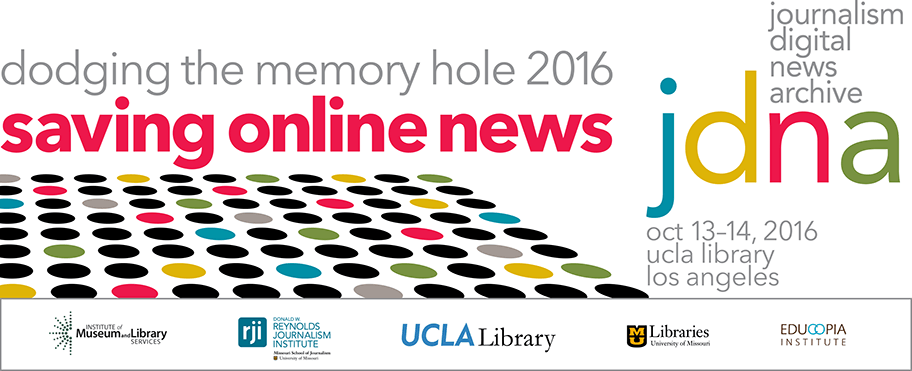
Terry Britt: Lightning rounds: News archives as cornerstones of collective memory
Scroll to view transcript
TERRY BRITT: [00:07] Hello, everyone. When people ask, “What do I do in research?” I usually reply, “A little bit of journalism study, psychology, sociology and just a tiny dash of neuroscience to really make things interesting.” So, what I wanted to do for this conference is to take some of the psychology and sociology concepts that I’m using in research, and tie those together with the digital archiving effort as a whole.
BRITT: [00:45] Basically, everything that we experience on a daily basis has the potential to become something called “episodic memory.” If you remember who you sat next to on the flight over here and maybe the topic of conversation you might have had with that person, that is a form of episodic memory, or that is an example of episodic memory. However, we’re not omnipresent and omniscient beings; so, we don’t know everything that goes on at every point in time, and that’s why we depend on the media to make us aware of events that we don’t experience directly.
BRITT: [01:33] This creates a type of memory called “mediated memory.” In other words, the experience and/or the knowledge of events given to us through mediated forms. If you go back into the foundational literature for communications studies, you find that one of the primary functions of the media is to transmit social and cultural heritage.
BRITT: [02:02] I chose a photo, there, of a Texas State High School football championship game because, believe me, from personal experience, nothing is more social and cultural heritage in this world than Texas high school football. In performing this function, the media content, over time, serves to help establish something called “collective memory.” That’s a social construction by which we, as a group or as a society, remember events, commemorate those events, also memorials would be an example.
BRITT: [02:50] Without media archives that becomes far more difficult. And that’s because, as time goes on, we lose, through mortality, all living witnesses to events that take place in time and space. What we have left are the media archives. And I will wrap up by saying, thank you for attending this conference. That’s a T-shirt that only a guy who started his professional career at 14 and in his 50s decided to become a journalism scholar, would neatly summarize his life, I think. Anyway, there’s all my contact information. I’d welcome any questions or comments or discussions. And thank you very much.
Comments